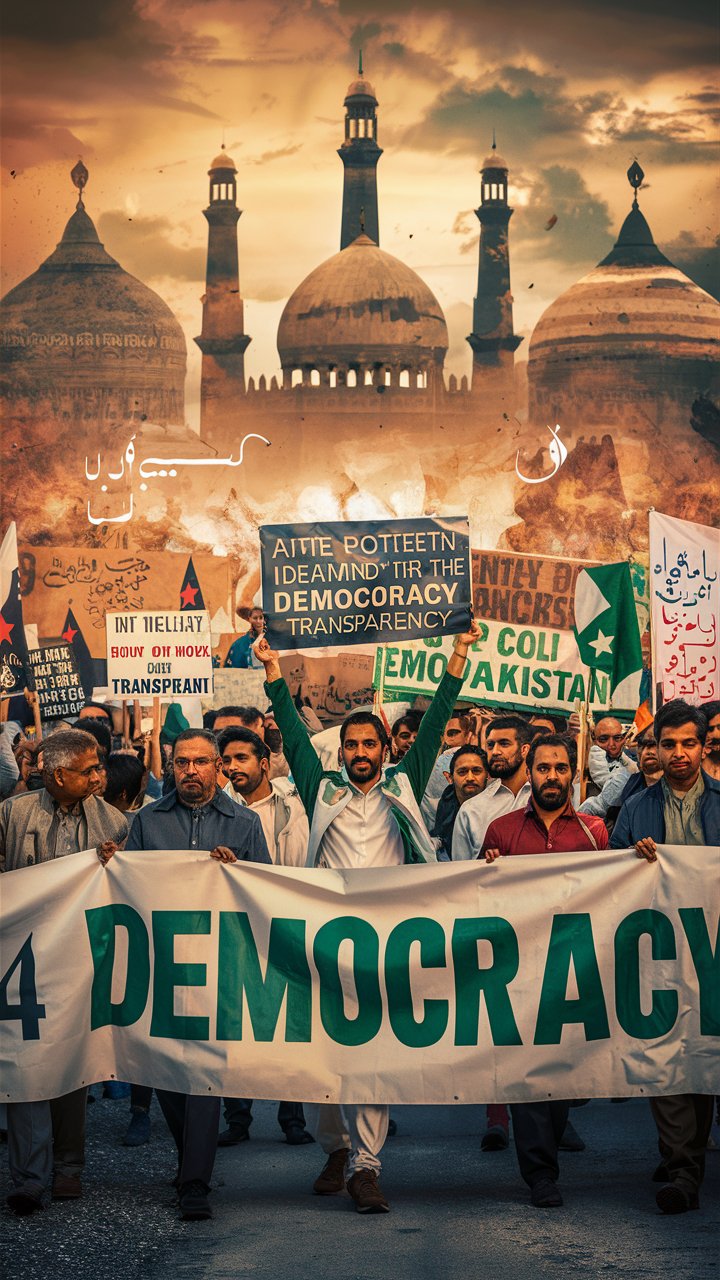Q. No. 4. The Democratization process in Pakistan is still weak and ambiguous.2024
Do you consider dynastic politics and feudalism the major hindrances on the way of establishing a true democratic system in Pakistan? Explain.

Q. No. 4. The Democratization process in Pakistan is still weak and ambiguous.2024
Introduction:
Pakistan‘s democratization process has been fraught with challenges, including issues related to dynastic politics and feudalism. Dynastic politics, characterized by the perpetuation of power within elite political families, and feudalism, marked by entrenched power structures based on land ownership, pose significant hindrances to the establishment of a true democratic system. This essay examines the impact of dynastic politics and feudalism on Pakistan’s democratization process and explores strategies to overcome these obstacles.
Dynastic Politics:
Dynastic politics refers to the practice of familial succession in political leadership, where power is transferred from one generation to the next within a political dynasty. In Pakistan, several prominent political families, such as the Bhuttos and the Sharifs, have dominated the political landscape for decades, controlling key political parties and holding influential positions in government. This phenomenon perpetuates a culture of nepotism, patronage, and cronyism, undermining meritocracy and democratic principles.
Feudalism:
Feudalism in Pakistan is characterized by a system of landownership and patronage, where feudal lords wield significant influence over rural communities and local politics. Feudal landlords control vast agricultural estates, maintain patron-client relationships with tenant farmers and laborers, and exert considerable political power through their influence over local elections and governance structures. This concentration of power in the hands of a feudal elite stifles grassroots democracy, perpetuates social inequalities, and hinders the empowerment of marginalized communities.
Hindrances to Democratization:
- Erosion of Democratic Institutions:
- Dynastic politics and feudalism undermine the development of democratic institutions and processes by concentrating power within a select few families and elites. This concentration of power limits political competition, stifles dissent, and weakens accountability mechanisms, leading to the erosion of democratic norms and values.
- Limited Political Participation:
- Dynastic politics and feudalism marginalize alternative voices and impede the participation of ordinary citizens in the political process. Political parties controlled by elite families often prioritize the interests of their own members over those of the broader electorate, diminishing the representation of diverse perspectives and hindering the emergence of new leadership.
- Corruption and Patronage:
- Dynastic politics and feudalism contribute to a culture of corruption and patronage, where political power is used to enrich oneself and consolidate control over resources. Feudal landlords often exploit their position of authority to extract rents from tenant farmers and secure electoral support through coercion and manipulation, perpetuating a cycle of dependency and exploitation.
- Stagnation of Policy Reform:
- The dominance of dynastic politics and feudalism impedes meaningful policy reform and development initiatives by prioritizing short-term political interests over long-term socioeconomic progress. Political leaders beholden to elite interests may resist reforms that threaten their privileged status or challenge vested interests, hindering efforts to address pressing issues such as poverty, inequality, and governance reform.
Strategies for Overcoming Obstacles:
- Political Reform:
- Implementing electoral reforms, such as campaign finance regulations, party registration requirements, and proportional representation systems, can help level the playing field and reduce the influence of dynastic politics and money in politics.
- Land Reforms:
- Undertaking land reforms to redistribute agricultural land from feudal landlords to landless farmers and promoting land tenure security can empower rural communities, enhance agricultural productivity, and reduce dependence on feudal elites.
- Civil Society Mobilization:
- Strengthening civil society organizations, advocacy groups, and grassroots movements can empower citizens to demand greater accountability, transparency, and inclusivity in the political process, challenging the dominance of dynastic politics and feudalism.
- Youth Empowerment:
- Investing in youth education, leadership development, and civic engagement initiatives can cultivate a new generation of leaders who are committed to democratic values, social justice, and inclusive governance, fostering a more dynamic and diverse political landscape.
Conclusion:
In conclusion, dynastic politics and feudalism pose significant hindrances to Pakistan’s democratization process, undermining the development of democratic institutions, limiting political participation, perpetuating corruption and patronage, and hindering policy reform and development initiatives. Overcoming these obstacles requires concerted efforts to implement political reforms, undertake land reforms, mobilize civil society, and empower youth. By addressing the root causes of dynastic politics and feudalism and promoting democratic values, Pakistan can advance its democratization process and build a more inclusive and equitable society.
visit:https://scholarshipresort.com/